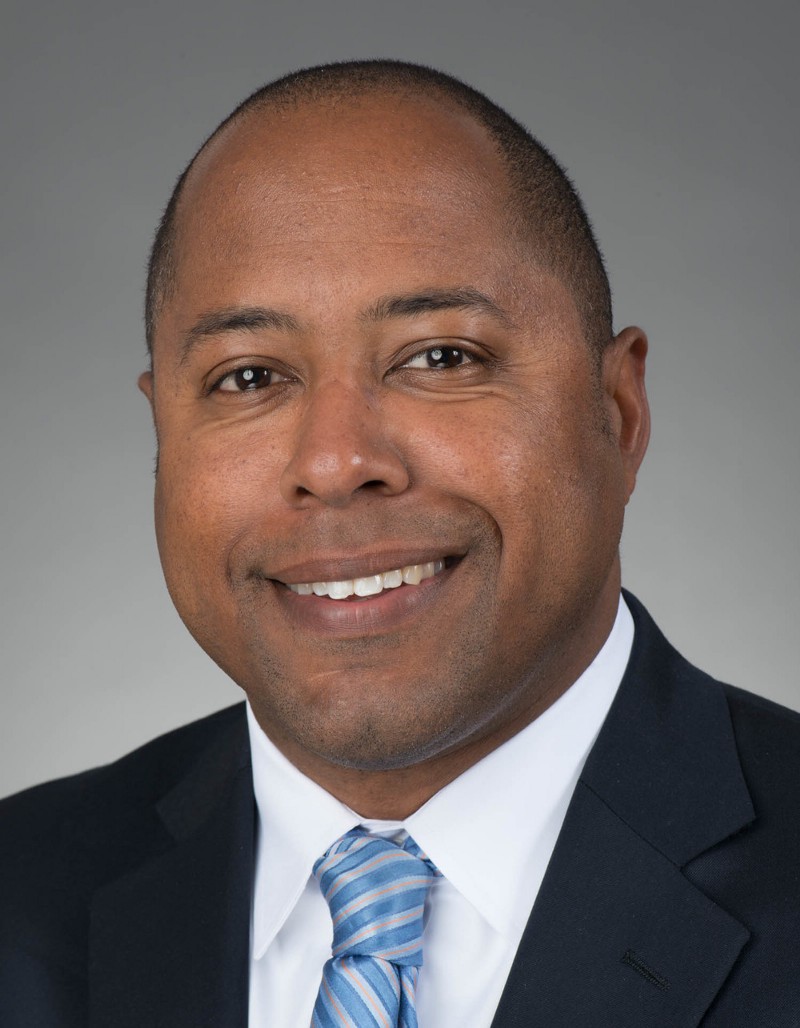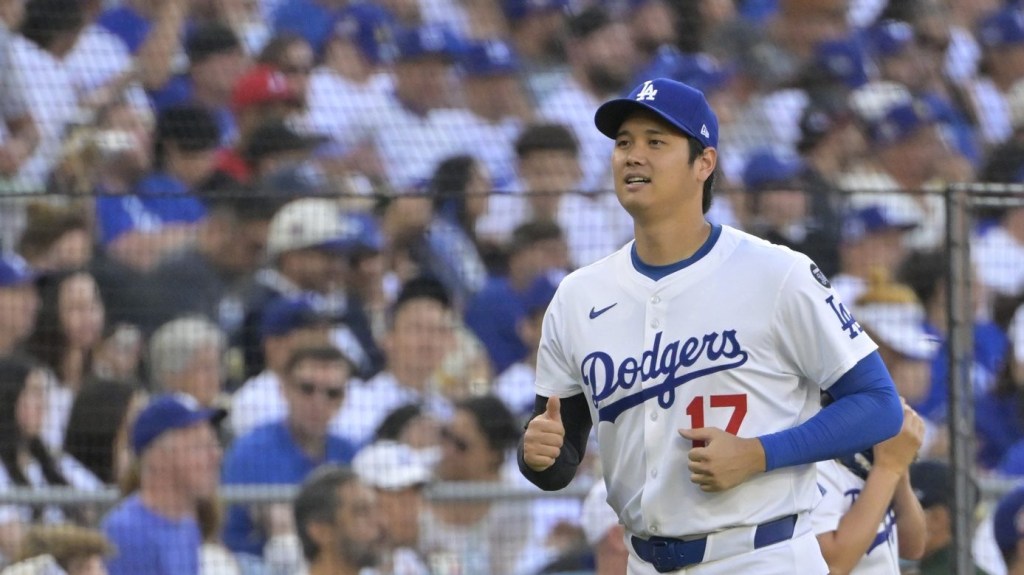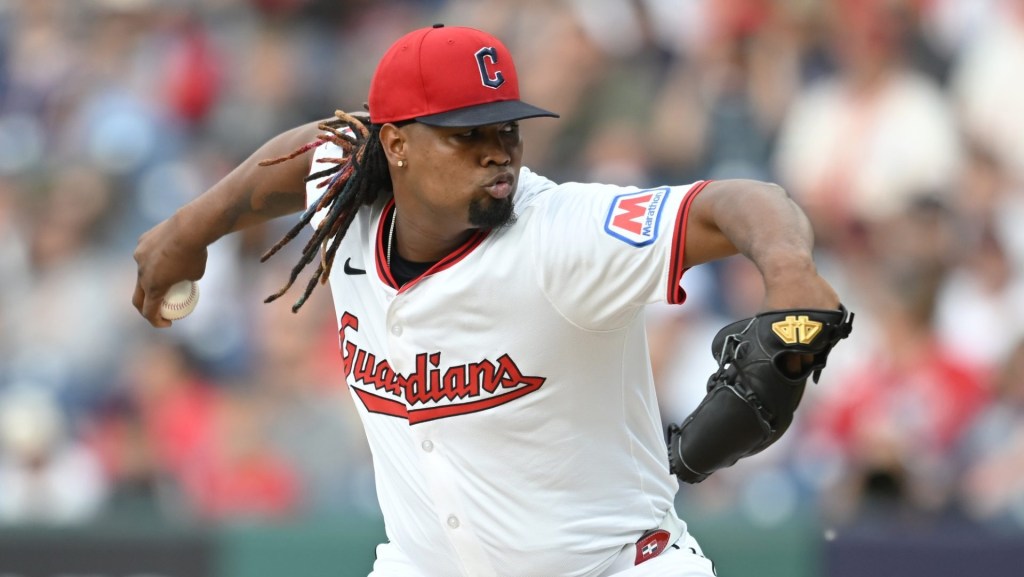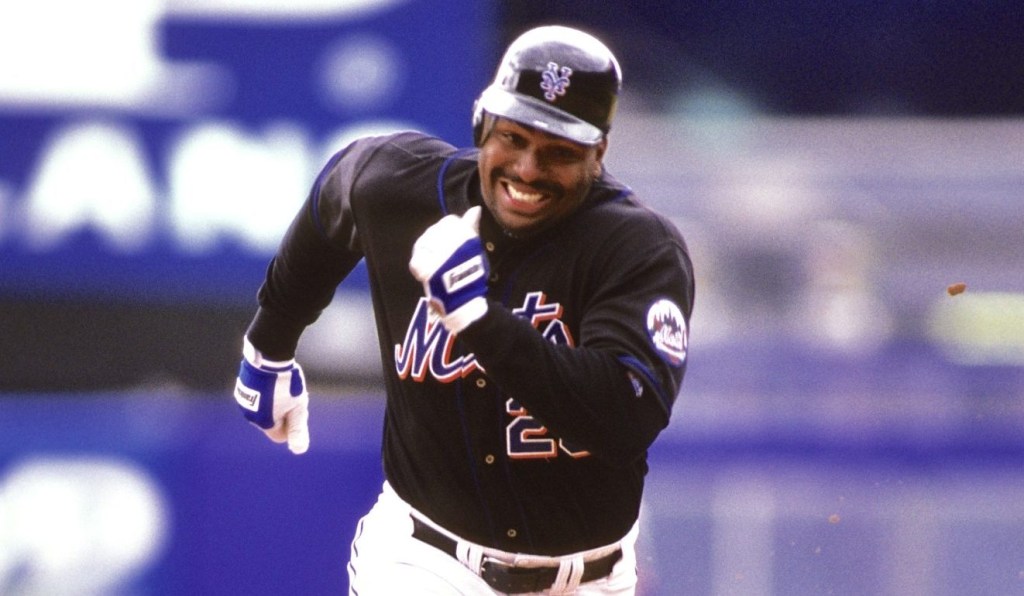This interview is presented to you by the University of Nebraska — Lincoln Master of Arts in Business with a Specialization in Intercollegiate Athletics Administration
By: Austin Weaver, @AustinTWeaver

Chipper Jones, Andrew McCutchen, John Smoltz; you may think one of these is not like the others, but there is a common connection, Tyrone Brooks.
Having spent more than 20 years in Major League Baseball, Tyrone has worked as a Scout, Director of Baseball Operations, Director of Baseball Administration, Director of Player Personnel, and is now the Senior Director of Major League Baseball’s Front Office and Field Staff Diversity Pipeline Program.
The right opportunity and being in the right place at the right time was where Brooks’ baseball journey would begin.
“My senior year of college, I came across and applied for the [Atlanta] Braves Trainee Program. While I was in that program, I was given a wide range of assignments. It was something like a test to see if I could handle the workload. I started two days after graduation, and sometime in July, a full-time position opened up. I still remember the conversation I had with John Schuerholz (Former General Manager of the Atlanta Braves, now President). He told me that with my accounting background, I could have a lot of success elsewhere, but he offered me the position that had opened up in the Braves organization.”
“After a few years working in the front office, the Midwest Area Scouting Supervisor position opened up and I lobbied with Roy Clark, (Former Braves Scouting Director, now Special Assistant to the GM) who eventually gave me an opportunity. I spent almost three years in Kansas City, where I was responsible for scouting Missouri, Kansas, Iowa, Nebraska, North Dakota and South Dakota.”
It was in 2004, the Braves called Brooks back to Atlanta, this time as the Director of Baseball Operations, a title that would eventually be changed to Director of Baseball Administration.
“As the Director of Baseball Operations/Administration, I was involved with contract negotiations, the arbitration process, roster projections, free agent signings and working with the pro scouts to identify players that we might go after through trades or in the off-season. I also assisted with evaluating our minor league system.”
After spending 11 seasons with the Braves, a stretch that saw the Braves win the division 10 times, Brooks chose to pursue a new opportunity on the west coast.
“In 2006, I left the Braves to join the Cleveland Indians as a Pro Scout in San Francisco. I had a lot of respect for the Indians franchise and how they operated. In my first year there, I had the chance to cross paths with Neal Huntington, who would leave in 2007 to become the General Manager of the Pittsburgh Pirates.”
Only a few years after joining the Indians organization, Brooks received a call from Huntington, who offered him a chance to join him in Pittsburgh.
“In 2009, I joined the Pirates as the Director of Baseball Operations, and held that position through 2011, when I transitioned to the Director of Player Personnel. The first two years in baseball operations, I was dealing with the day-to-day roster moves, transactions, budgeting and a lot of jobs that an assistant GM would typically do. When I moved to Player Personnel in 2012, I oversaw a pro scouting staff of around 15 individuals, as well as our non-Latin international scouts. A lot of my work was working strategically to put together our roster.”
Within the last year, Brooks made the move from the team side to the league office, a change that took some getting used to.
“I started in the league office right around the time spring training was getting started. It was strange not getting ready to head down with the team. It is different not being invested in the team’s record, in the wins and losses. The other big difference was the size of the group I was working with. With the Pirates, I supervised around 20 people at any one time. Here it is myself and my colleague, Renée Tirado (Senior Director, Recruitment).
The Diversity Pipeline Program is a new program put on by Major League Baseball that aims to identify and grow the pool of minority and female candidates for front office and on field positions. Brooks shared what his goal for the program is and what he might spend his day working on.
“Our mission is to connect teams to minority and female candidates that are qualified to work in both front office and on field positions. Every day we are talking with clubs, working on raising awareness to what we are doing. We also work with clubs to put plans together for teams to use our resources in their hiring process. “Part of our efforts are working with clubs to create a plan to develop their high potential women and minority candidates already in the pipeline and guide them to move into leadership positions.”
“We will build our program by connecting with academic and athletic programs (baseball and softball), college students and recent graduates to find prospects looking to work in the industry. A lot of our work is to build connections and find contacts in these organizations for teams to use as resources in their hiring.”
Building connections is something that Brooks has plenty of experience in. Outside of his full-time work, Brooks is the founder of the Baseball Industry Network, a group on LinkedIn.
“I was in San Francisco, and had just started really using LinkedIn, and noticed how many people in the baseball industry were on the site. I thought that there was an opportunity to get all of these people in the same place. I reached out to a few people that I knew, and slowly through both word of mouth and how LinkedIn operates, the group continued to grow. Now a little over seven years since the group’s inception, it has grown to over 30,000 members.”
“I have seen a countless number of people make relationships through the group that helped lead to an opportunity in baseball. I try and host several events throughout the year so that people can take these virtual relationships and build a face-to-face relationship. Our biggest event every year is at the winter meetings.”
Working in baseball may appear glamorous on its face, but it is important to really love the game.
“The first thing I would say about working in baseball is you have to really be passionate about the game, you are going to be working a lot of hours, and it is important you understand that. When I am looking at an applicant, I really want to know who they are as an individual. I am going to be working a lot of hours every day, every week and every month with this person so it is important that we hire people that we will enjoy being around.”
For those that aren’t scared off by the time commitment of working in baseball, what other skills does Brooks say are important?
“It is always helpful if someone has a baseball or softball background and ability to show a feel for the game. What packages are you proficient with? A knowledge base of the game, player movement, team signings, awareness of what is going on around the league. Maybe a background in sabermetrics. Sabermetrics have become a vital part of our game.”
“Do a self-analysis and find out what your strengths are and how they can help move an organization forward. Know your skill set and find ways to continue to grow. The game will continue to grow, so you have to make sure you are growing with it.”
After landing that full-time job with an MLB franchise, what challenges should you be prepared for and what rewards might you find? Brooks laid out what his biggest challenge and rewards are.
“The hardest part is balancing time spent with family. I am married with two kids, and with different things such as the draft, spring training, and winter meetings, work takes up a lot of time. It takes a really strong, supportive partner to be able to handle the work schedule that comes along with working in baseball.
“The most rewarding part is getting to work beside some of the people you grew up idolizing and seeing that they are much more than just baseball players/executives. I have also had the privilege of working for teams that have experienced post-season success.”
For those looking to find tomorrow’s next big star and wants to get into baseball scouting, Brooks offered the following advice.
“There is no one correct way to get into scouting, but the biggest thing is get out to games where scouts are going to be. Go out and use your baseball intellect. Start putting down your thoughts on paper and then get feedback on your evaluations. Get out and see different levels of play. Being able to have your thoughts clearly and precisely presented is a key skill. Not only is it important to be able to put it on paper, but being able to verbally present your evaluation is extremely important.
Over 20 years later, if Brooks could go back to the beginning of his career and give himself one piece of advice, it would be about the power of relationships.
“When I first started out, I didn’t fully understand the power of relationships. I learned very quickly after getting into the industry the importance of networking and meeting people working throughout baseball. Don’t ever take a chance to make a first impression lightly, it may be the only chance you get to make an impression on someone. Finally, follow up and stay connected, you never know what a relationship will lead to down the road.”

This interview was presented to you by the University of Nebraska — Lincoln Master of Arts in Business with a Specialization in Intercollegiate Athletics Administration
















